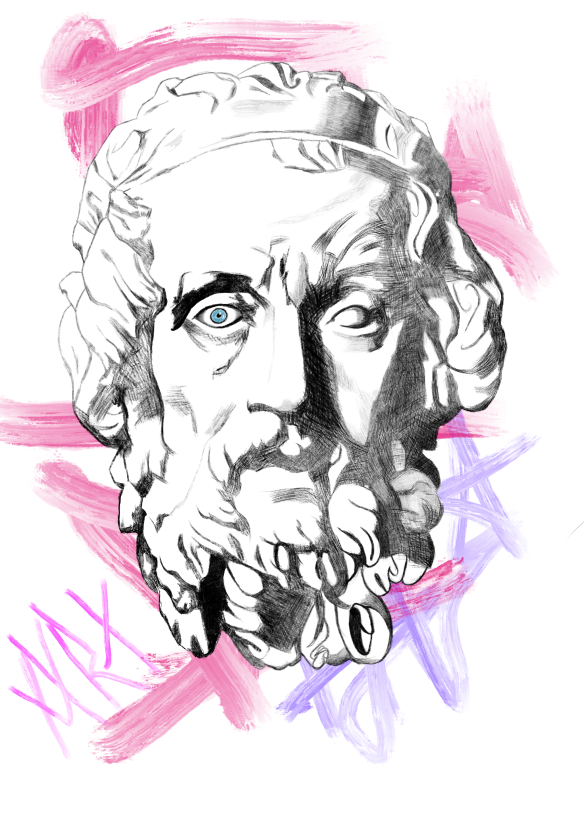In the heart of the Mediterranean lies the cradle of Western civilization, the land of Ancient Greece, a realm steeped in myth, philosophy, and art. Among the great minds that emerged from this fertile land, none shines brighter than the legendary poet, Homer.
Little is known about the life of Homer himself, shrouded in the mists of time and passed down through oral tradition. Some believe he was born in the 8th century BCE on the coast of Asia Minor, while others place his origins on the captivating isle of Chios. Regardless of his birthplace, his impact on literature and culture remains unparalleled.
Homer’s epic poems, the Iliad and the Odyssey, stand as masterpieces of ancient storytelling, etched into the annals of human history. The Iliad recounts the tragic tale of the Trojan War, where heroes clashed, gods meddled, and fates intertwined. The wrath of Achilles, the valor of Hector, and the cunning of Odysseus echoed through the ages, captivating countless generations.
In the Odyssey, Homer weaved a tapestry of adventure, as the wily Odysseus embarked on a perilous journey homeward after the fall of Troy. Along the way, he faced enchanting sirens, the wrath of gods, and the treacherous pitfalls of mortal nature. The themes of resilience, temptation, and the longing for home struck a chord with audiences then, and continue to resonate today.
Beyond the gripping narratives, Homer’s works explored profound human emotions and complexities. Love, loss, honor, and the inexorable march of time echoed through his verses, reflecting the timeless dilemmas faced by humankind. The Homeric poems became more than just stories; they became mirrors through which individuals could reflect on their own lives and the world around them.
Moreover, Homer played a crucial role in shaping the ancient Greek identity. His epics were an integral part of the oral tradition, recited at gatherings and festivals, uniting the diverse Greek city-states under a common cultural heritage. The characters and their virtues inspired notions of heroism and excellence that permeated Greek society, influencing their art, politics, and values.
The impact of Homer’s legacy did not end with ancient Greece. His works transcended time and space, inspiring countless authors, poets, and thinkers across the centuries. From Virgil’s Aeneid in ancient Rome to James Joyce’s Ulysses in the modern era, the echoes of the Homeric tradition reverberated throughout literary history.
In addition to his literary achievements, Homer’s contribution to language itself cannot be overlooked. His poetic style, now known as Homeric or epic hexameter, set a precedent for the oral tradition and influenced subsequent writers for generations to come.
Yet, amidst all the grandeur and reverence, we must also acknowledge the gaps in our knowledge. The mystery surrounding Homer’s identity, the debates over whether he was a singular poet or an amalgamation of several voices, and the question of authorship continue to be topics of scholarly discourse.
As we explore the genius of Homer and the wonders of ancient Greece, we are reminded of the enduring power of storytelling and its ability to bridge the chasm of time. Homer may be a figure from the distant past, but his voice still echoes in the chambers of our imagination, inviting us to traverse the realms of myth, wisdom, and human nature. His legacy serves as a testament to the extraordinary capacity of storytelling to shape cultures, inspire minds, and connect generations in an ever-changing world.
